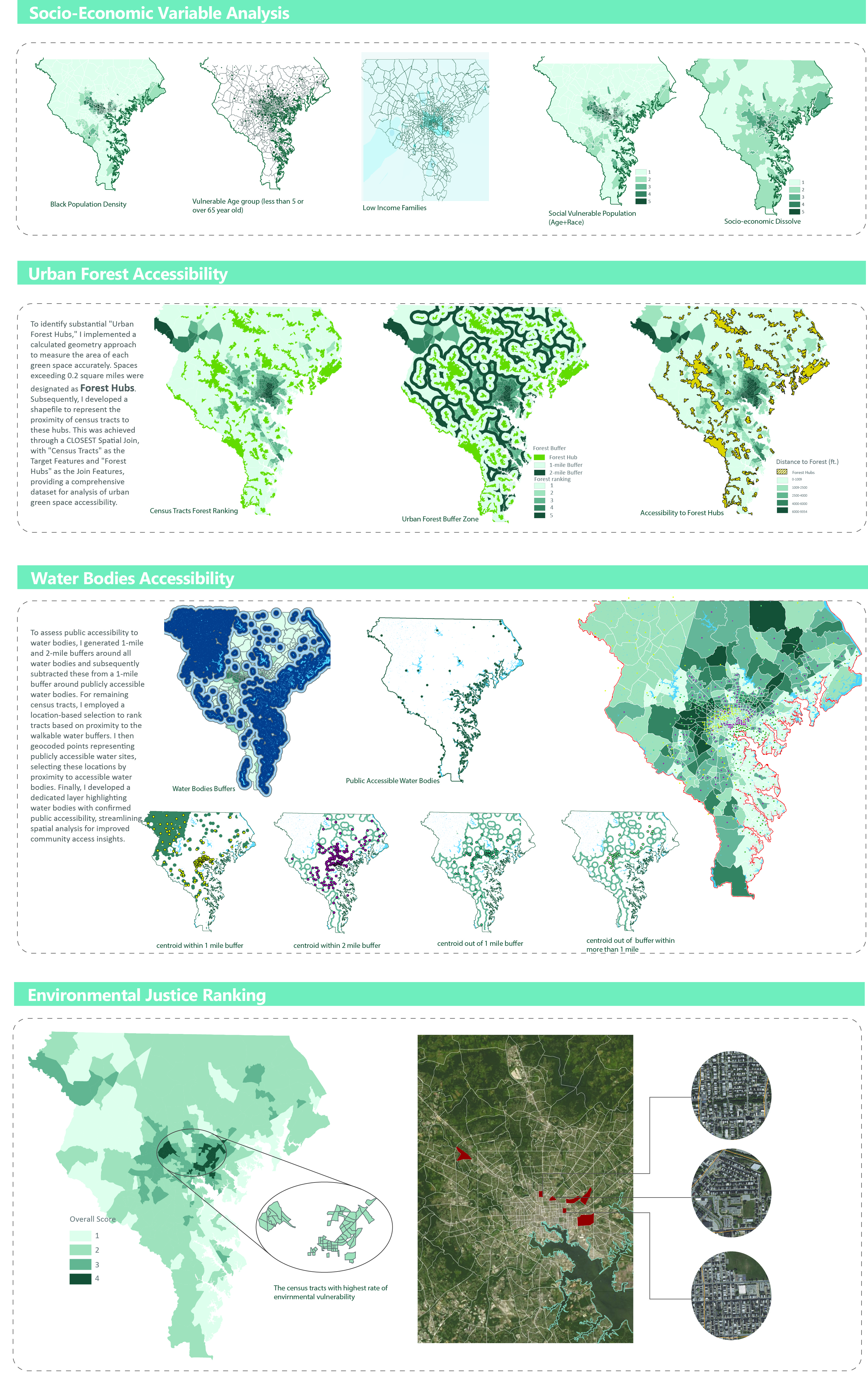
Identifying Patterns
In Mid-Atlantic Marine Debris
Urban forests play a crucial role in buffering climate change impacts, enhancing air quality, and fostering environmental equity—making them a critical focus in recent years. The Baltimore Ecosystem Study (BES) has positioned Baltimore as a leading U.S. city in urban forestry and ecological understanding, examining the city as a dynamic ecosystem. Through this study, I am assessing Environmental Justice within the Long-Term Ecological Research (LTER) boundary, specifically evaluating which census tracts face the greatest environmental disparities. The goal is to identify areas most impacted by environmental injustices and to inform actions that enhance quality of life equitably for all residents, advancing Baltimore's resilience and inclusivity.
According to the findings of this study, the census tracts most vulnerable to environmental injustice are concentrated in Baltimore’s downtown area, where socioeconomic vulnerability is also significantly high. These areas score the highest in environmental injustice due to a combination of factors, including limited access to green spaces and exposure to urban heat, air pollution, and other climate stressors. This overlap of environmental and social vulnerability underscores the urgent need for targeted interventions that enhance urban forests and other green infrastructure to support resilience and improve quality of life for Baltimore's most affected communities.